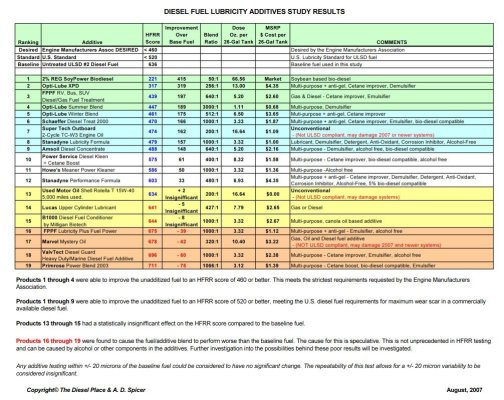LOL kind of difficult to answer a hypothetical, but I trust my mechanic and he uses the ATF fluid in his nearly identical truck, and we both work them pretty hard pulling trailers, etc. I think his reasoning is the lowered quality of diesel today causing injectors to clog and pumps to fail.
Lowered quality of diesel? What's that based on? You can get off spec fuel, with low lubricity, but it's rare, thousands of over the road trucks consume millions of gallons of diesel and most use no additives, same with commercial and military marine diesels.
I have a Ford F250 7.3L diesel, turbo, 1996, owned from new. I have used Stanadyne Performance Formula in the fuel almost from new. Never a fuel related problem, in fact almost no problems with this engine, I love it.
However, is that because of the Stanadyne? No way to be sure without a control, most people who run this same engine, UPS, ambulances, tow trucks, roach coaches etc. add nothing to the fuel and its longevity is legendary.
I caution folks about home-brew fuel additives, and all fuel additives for that matter, without testing, there is no way to know if it's helping, or hurting. ATF isn't cheap, you could buy a proven product like Stanadyne and use that with greater peace of mind.
More here https://stevedmarineconsulting.com/diesel-fuel-additives-part-i/

